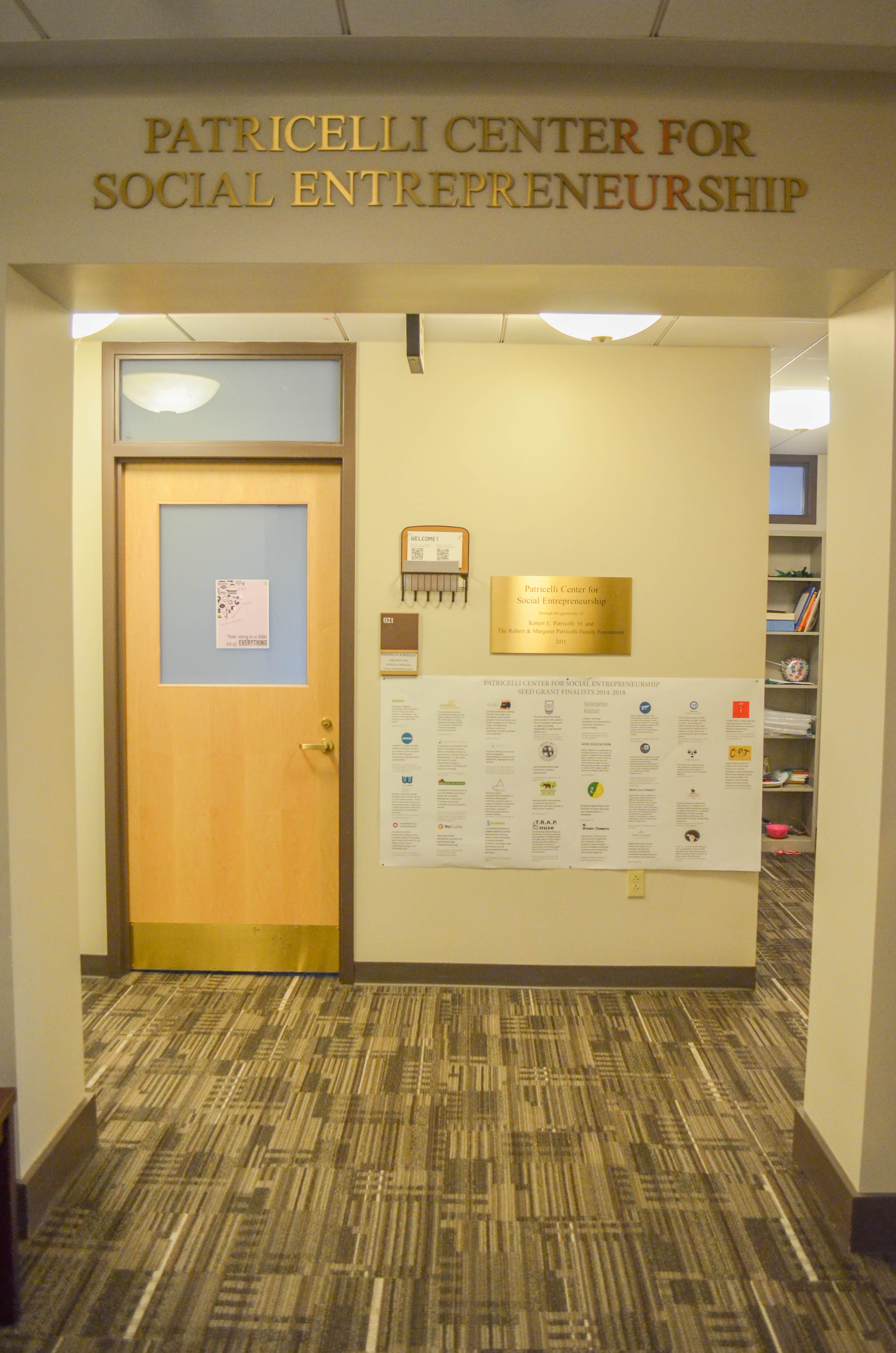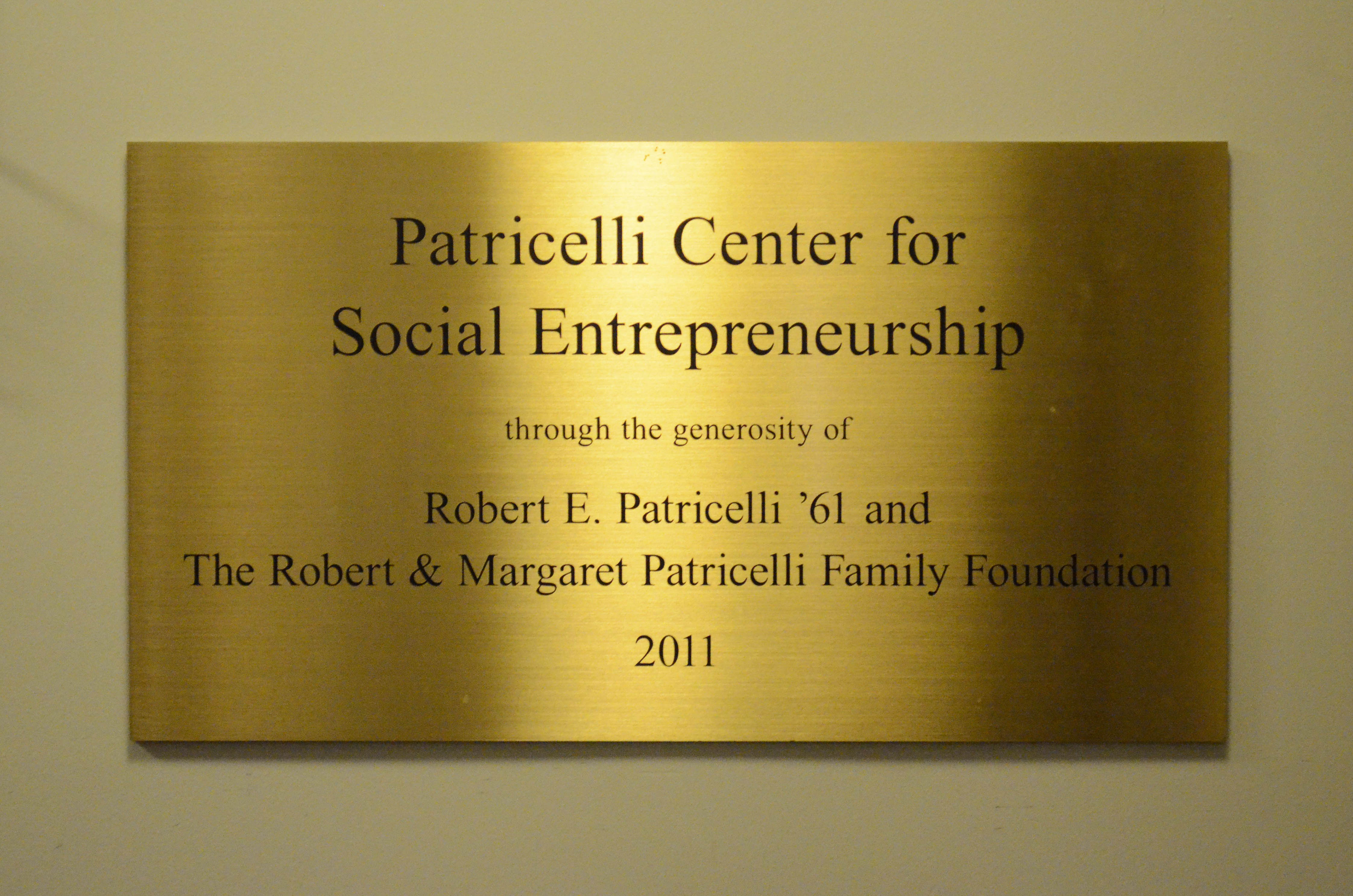
Nita Rome, Staff Photographer
Junior Kat Osorto waited eagerly for the phone to ring in Wesleyan’s sleepy student-run cafe. When it did, signaling the arrival of a transportation van, she and a handful of her peers met the driver and traveled 15 minutes down a Connecticut interstate highway.
This day represented the culmination of months of work by a group of four Wesleyan students seeking to enact social change that extended beyond campus. They named their venture the Foster Care Support Project (FCSP), and founded it with the goal of helping local foster children develop through mentoring, tutoring, and companionship. Finished with organizational work, background checks, and training, Osorto would finally meet a 12 year-old foster child with whom she hoped to build a relationship during her remaining time at school.
“I was curious to see what he’d be like, and I tried to think of things to prepare for him,” Osorto said, who used her relationship with her 12 year-old brother for ideas. “I was wondering how should I build this relationship, what should I focus on, and how can I help him grow personally.”
Once at the facility, Osorto and her paired child, Julian*, spent their evening playing board games and getting to know each other.
“I think when I finally met him I was really surprised,” Osorto said. “His interests were actually quite opposite from what I was thinking.”
Julian seemed most focused on technology and building contraptions by following YouTube tutorials, according to Osorto.
“I’d see him and I’d see an engineer, his attitude was so firm in a way,” she said.
As two strangers in an unusual new environment, the pair took some time to develop a close relationship. Eventually Osorto decided to teach Julian computer programming, an activity well-aligned with his passions. Julian was quick to learn and the two grew to thoroughly enjoy each meeting and new lesson, Osorto said.
Now in its second semester of operation, FCSP has paired up over ten foster children with student volunteers that meet weekly. But as co-founder Luke Lezhanskyy ’20 will tell you with contagious optimism, the group has no intentions of plateauing at this number.
“Going beyond this year, ultimately the goal is to reach all of Connecticut and, hey, maybe one day reach all of New England,” Lezhanskyy said. “I think that sort of expansion will be slow, it’ll be difficult, but eventually I think that is a feasible goal that can be realized.”
On March 4, these objectives suddenly became significantly more attainable. Following a lengthy proposal process, FCSP was selected by the University’s Patricelli Center for Social Entrepreneurship as one of four student-led ventures to receive a $5,000 seed grant.
“The whole idea of the Patricelli Center is we’re trying to get students who are sitting in classrooms learning about problems to kind of translate what they’re learning into a project that could work on the ground and have an impact,” explained Patricelli Center intern Hana El Safoury ’19, who works as a grant coordinator.

Nita Rome, Staff Photographer
The process this year began with about a dozen student proposals, which were weeded down by the Patricelli Center to six finalists. On March 1, Luke and the other finalists presented to a panel of 17 judges, most of whom were Wesleyan graduates.
For the first time, the judges selected four winners rather than the typical three. Although the Patricelli Center only had the budget for three grants, the panel felt strongly enough about the quality of all four pitches that they ultimately chose to support the fourth with funding from their own pockets.
While FCSP was already an established student group before winning the grant, this was not a requirement for the competition. Other recipients, like the group Downstream Podcasting presented by seniors Alli Fam, Ben Saldich, and Isaac Price-Slade, pitched their ideas as plans that they hoped Patricelli money could help get off the ground. Downstream Podcasting proposed a goal to diversify the podcasting industry through providing workshops for underrepresented students and opportunities for these students to work on Downstream’s podcast series.
“Why I loved this year’s competition is…[the projects] varied,” El Safoury said. “People are running with their ideas or with projects that they’ve already established.”
Another distinguishing feature of the projects is the variable scope each established to address their particular goal. For FCSP and Downstream Podcasting, students set their sights on the Wesleyan campus and local community—at least initially. The other two winners took a different approach. First-year Sydney Ochieng’s venture, Accessible and Affordable Sanitation for Women (AASW), seeks to increase access to proper sanitation for schoolgirls in Mombasa, Kenya. And the last winner, Dharma Gates presented by Aaron Stryker ’19, wants to offer students across the U.S. access to an affordable meditation-centered gap semester program.
What unites these diverse programs is adherence to the Patricelli Center’s selection criteria. Each venture must address a social problem, be sustainable, be scalable, and have potential for impact. For FCSP, Luke said the whole growth process started with identifying a social problem that he and other students wanted to address.
“At its core, FCSP is a project that is trying to empower foster children through mentorship,” he said.
To get FCSP off the ground and running, Lezhanskyy said the founders were able to get support from other groups on campus in addition to the Patricelli Center. The Office of Community Service, Allbritton Center for the Study of Public Life, and Wesleyan Student Assembly all pitched in essential funds to cover costs like the program’s transportation operation.
Once all logistics were secured, volunteer-child pairs like Kat and Julian were at last able to meet. At this moment, Lezhanskyy said the program began to check another box on the Patricelli Center’s selection criteria list: social impact.
“The kids, I believe, get a sort of support,” he said. “They get the knowledge that [they] are meaningful enough that a college student is taking the time for free to just come and spend time together. We’re not doing rocket science, you know…. But it’s difficult to describe how important that companionship is to a child’s development.”
Carola Melendez-Rios, a caseworker for three youths enrolled in FCSP, voices the children’s perspective with commensurate conviction about the program’s potential for impact.
“[The kids] had expressed interest in the program and we thought it would be a good fit for them because they do definitely need academic support and they need socialization support,” Carola said. “Socialization is a big thing. Learning how to have appropriate social skills with different people in different environments is really important and we thought this would be a really good opportunity.”
Weekly meetings have been very well-received, according to Melendez-Rios. She, like Lezhanskyy, now hopes the program can expand to assist even more children.
“[The kids] are really looking forward to coming every week,” Melendez-Rios said. “I know they enjoy having people to talk to, people to play games with, and it’s at a place where they feel safe.”
Melendez-Rios also emphasized that FCSP is providing these children with support on a volunteer basis.
“One youth in particular really developed a relationship with one of the tutors and they’ve continued to meet and have a therapeutic relationship beyond their time here, which is really what would be our hope for anybody who participates in a program like this,” Melendez-Rios said. “It’s having someone that they can count on that they know isn’t there because they’re being paid.”
With a $5,000 check cashed in FCSP’s name, the students now face decisions on how to expand the current operation while retaining these close relationships.
“We hope that grantees will embrace the process of prototyping, learning, and iterating their ideas,” said director of the Patricelli Center Makaela Kingsley, who will remain a point of contact while winners allocate their newfound funding. “We hope they will continue to build strong partnerships with other stakeholders. Ideally, they will lay a foundation for financial sustainability.”
Lezhanskyy’s strategy for financial sustainability stresses survival through connection. He hopes that by collaborating with other organizations doing similar work, the program will continue to thrive long after he and other founding members graduate.
“There are a lot of different organizations—state, local, and national—that are working to effect some sort of change with the [foster care] system,” Lezhanskyy said. “As a result, there’s a lack of communication in trying to create some sort of coordinated effort to really do something about the system…. There are organizations that are doing similar or pretty much identical work, but they don’t communicate with one another.”
FCSP members are currently attempting to partner with one such nonprofit called Mentor, which, fittingly, connects mentors with at-risk youths. Lezhanskyy said they had no idea Mentor even existed until a coincidental conversation with a friend of his a month ago. He also hopes to have a relationship with at least one more foster care organization and one more college or trade school in the state by the end of the year.
“I believe [the grant] will give us the resources to expand our work further,” Lezhanskyy said. “The key to doing something really lasting—in this state at least—is to create a coordinated effort. A network can do much more good if it’s connected and people are going at it together rather than all alone.”
*Names have been changed to protect the identity of minors in the foster care system.
Spencer Dean can be reached at srdean@wesleyan.edu.
Comments are closed